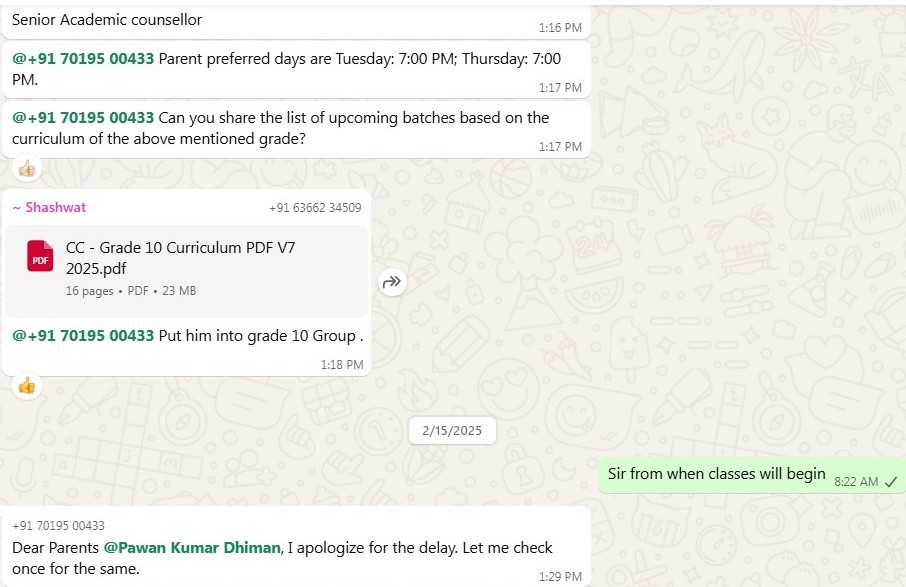Registered Users: 7414
We discovered Codingal through a Facebook advertisement and decided to enroll in a Python course.
The student had already completed HTML, CSS, Bootstrap, and some Python lessons on W3Schools. He was even creating basic web pages. Wanting to gain deeper knowledge of Python to build dynamic websites and mobile apps, he came across the Codingal ad on Facebook.
Conversation with Codingal:
Codingal: Which course would you like to join?
Student: Python, the one we saw in your advertisement.
Codingal: Great. The total fee is ₹14,000 after discount. It will be split into two installments of ₹7,050 each. Here is the Grade 10 syllabus, which includes HTML, CSS, JavaScript, Basic Python (6 modules), and Advanced Python (6 modules).
Student: Okay, I’ve received the syllabus. The payment was auto-deducted via GPay. The parents felt satisfied that their child would now be learning online through Codingal, rather than going outside for classes.
Since it was May and June, it was considered the perfect time for the student to start learning something new.
However, even after both installments were paid, the parents began receiving repeated messages requesting additional payments to continue classes. Initially, these were ignored. Later, after contacting Codingal’s management, they were informed that no credits were left in the student’s account, and that further payments were required to continue.
The parents explained everything clearly to the management — the course chosen, the payments already made, and the confirmation received from the Codingal team. Despite this, the team repeatedly insisted on paying more to proceed.
To their shock, the parents also discovered that Python classes had not even started, even though two months had already passed. This left them feeling completely cheated and misled by Codingal.
As a result, both time and money have been lost, while Codingal continues to demand additional payment.
